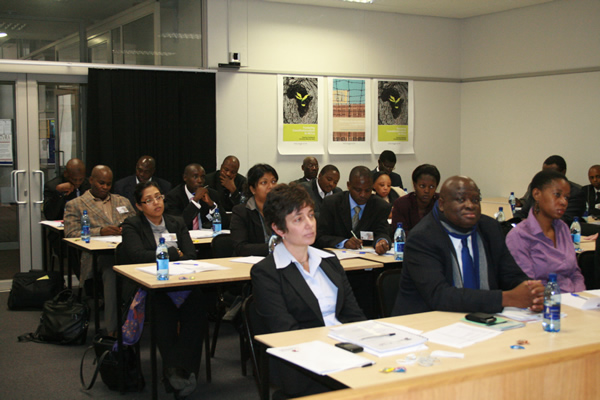13 - 14 June 2011, Centre for Human Rights, Faculty of Law, University of Pretoria
Government experts and academics from Southern Africa and around the world participated in a successful workshop on giving effect to the law on genocide, crimes against humanity and war crimes.
The workshop, held on 13 and 14 June 2011 at the Centre for Human Rights, was attended by experts from the Attorneys-General’s Chambers and national prosecution authorities in the SADC region, particularly from Democratic Republic of the Congo, Kenya, Lesotho, Madagascar, Malawi, Mauritius, Mozambique, Seychelles, South Africa, Swaziland, Tanzania, Zambia and Zimbabwe. In addition, an expert from the International Criminal Court participated in the workshop.
Participants discussed crucial issues relevant to prosecution of international crimes in the sub-region. Such issues included international, regional and sub-regionallegal frameworks on prosecution of international crimes, national laws implementing international treaties such as the Geneva Conventions and Additional Protocols, the Genocide Convention, the Rome Statute of the International Criminal Court and other treaties. Also, participants discussed the ratification of international treaties proscribing international crimes, implementation and domestication of such treaties at national level, the issue of complementarity as found in the Rome Statute of the International Criminal Court, extradition, universal jurisdiction, the duty to prosecute perpetrators of international crimes and, establishment of national implementing committees of international humanitarian law.
Participants engaged in discussions on the challenges and achievements in prosecuting international crimes, and implementation of international treaties in their respective countries. It was observed that the Democratic Republic of the Congo has been able to prosecute individuals for international crimes, particularly war crimes and crimes against humanity. Such prosecutions were before Military Tribunals. Amongst the challenges faced by countries in ratifying or implementing international treaties include the nature of legal systems in the countries (dualism and monism), lack of experts, capacity and resources, the priorities in ratifying and domesticating treaties, lack of awareness campaigns by civil societies and lack of sufficient trainings on international criminal justice and international humanitarian law in the universities and armed forces in the sub-region. Participants agreed to work together and encourage their governments to cooperate in extradition, surrender and detection or transfer of suspects of international crimes in the sub-region to face prosecutions before courts. There was also consensus about the need for states to ratify and implement or domesticate international treaties prohibiting international crimes so that national authorities, including the judicial institutions can be able to proceed against perpetrators of international crimes.
The workshop was organised by the Centre for Human Rights (CHR), International Criminal Law Services (ICLS) and Konrad Adenauer Stiftung (KAS), with the generous support of the Governments of Finland, Germany, and the Open Society Initiative for Southern Africa.


